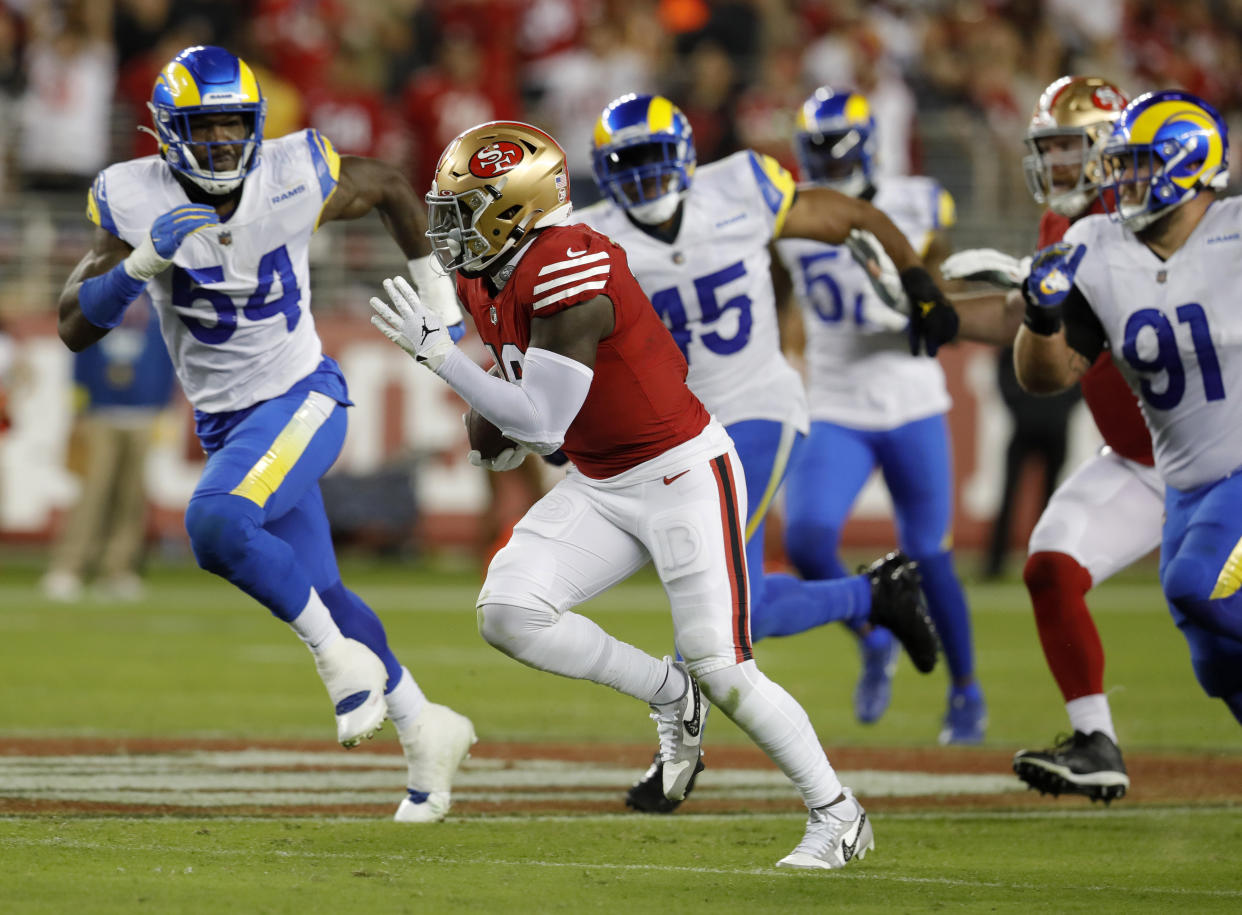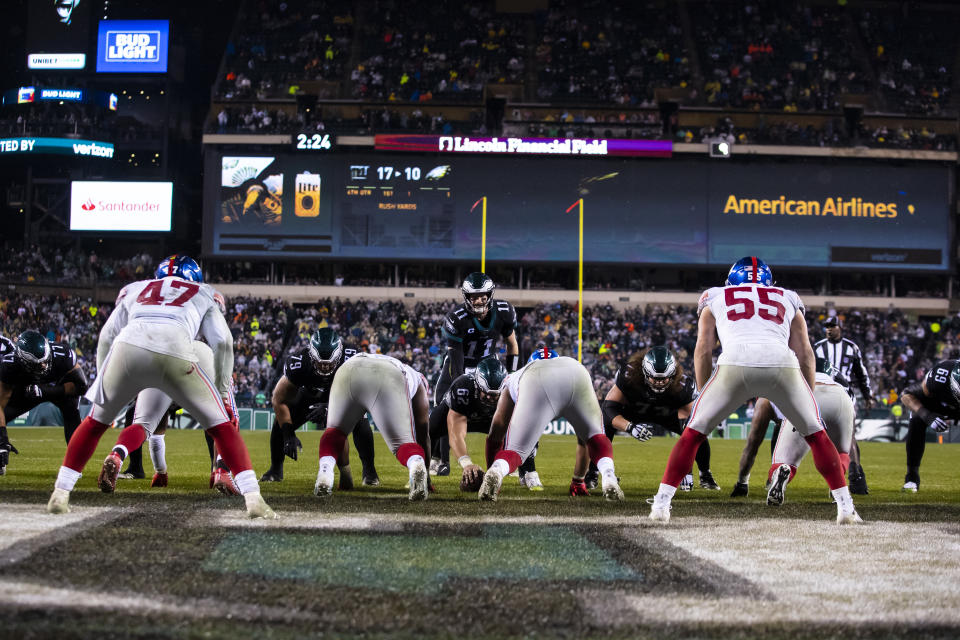A Running List of Everyone Who Already Hates the Disney, Fox, and WBD Sports-Streaming Service

The recently announced Disney, Fox, and Warner Bros. Discovery sports streaming service isn’t exactly going over like gangbusters with much of the industry — and possibly not with the government.
Fubo is the first to sue, though it may not be the last. On February 20, Fubo TV Inc., which bills itself as “the leading sports-first live TV streaming platform,” filed an antitrust lawsuit against the three companies in the new joint venture — and their affiliates. The suit argues that Disney, Fox, and WBD “have engaged in a years-long campaign to block” Fubo, “resulting in significant harm to both Fubo and consumers.” Those claims date before the surprise February 7 announcement of the trio’s own unnamed (and unpriced) sports-centric service, which the new lawsuit says “steals Fubo’s playbook.”
More from IndieWire
Hey, Warner Bros. Discovery Is Adding Streaming Subscribers Again
Demands for Pay Equity Plaster the Costume Designers Guild Awards: 'You're Naked Without Us'
Hey, if you can’t beat ’em…
The Fubo lawsuit further says the defendants have “leveraged their iron grip on sports content to extract billions of dollars in supra-competitive profits.” With highly desirable sports content, Disney and Warner Bros. Discovery, in particular, have been able to force bundles of channels — including some that few customers want — on distributors. Fubo says the practices have resulted in “billions of dollars in damages” and that the joint venture is “simply the latest coordinated step…to eliminate competition in the sports-first streaming market.”
OK, so we’re getting the sense that Fubo is not a fan. While the OG sports streamer has taken the affront harder than most, it is not the joint venture’s only early detractor. The NFL and the NBA, the two biggest sports leagues in America, were both taken by surprise by the Disney/Fox/WBD announcement. Powerful multi-billion-dollar sports leagues are not used to their broadcast partners taking them by surprise.
For now, the leagues are watching it all play out. MVPDs (Multichannel Video Programming Distributor) and v(virtual)MVPDs will do the same — they’re already smarting over having to pay for channels nobody watches (WBD’s Science, Disney’s Freeform) for the privilege of paying more for the ones their customers actually want (WBD’s Food Network, Disney’s ESPN). Providers of traditional linear-television packages, like Comcast and Charter’s Spectrum — or their streaming equivalents, such as Hulu + Live TV and YouTube TV — are likely pretty peeved about the joint venture.
Reps for Comcast, Charter, Hulu + Live TV, and YouTube TV did not immediately respond to IndieWire’s requests for comment. Whatever; put ’em all on the list.
(Hulu, which is now wholly Disney-owned, is in a particularly conflicted position. Hulu is also, in some ways, the model here; it was started as a joint venture between Disney, Fox, and NBC. And just look at how well that worked out!)

Fox chief Lachlan Murdoch and Disney’s CEO Bob Iger have each gone out of their way to swear their new sports service, circling a fall 2024 launch, is targeting cord-nevers, or those Americans who never had a traditional linear bundle in the first place. (WBD’s David Zaslav will get his turn during his company’s earnings call on February 23.) It is a claim that doesn’t track with logic — cord-nevers were (cord-)never interested in paying for sports in the first place.
As proposed, the new service — if priced competitively — will accelerate the rate of Americans leaving the traditional cable ecosystem. Analyst Steven Cahall of Wells Fargo estimates the new joint venture will speed up the already scary cord-cutting pace by 2 percent each year through at least 2027. The three companies, which have made so much money on linear TV, seem willing to butcher a cash cow before it runs out of usable flank steak. The cow was dying anyway.
Disney and Fox did not immediately respond to IndieWire’s requests for comment on this story. Warner Bros. Discovery declined comment.
At least part of the plan appears to be a flex. Carriage negotiations between channel providers and channel distributors are becoming more and more contentious; Disney learned that firsthand with Charter. What saved that arrangement was Disney+, which Charter wanted free for its cable customers. Some consumers will get exactly that; others will be passed on a wholesale rate for Disney+ and ESPN+.
ESPN is another Disney brand in strange territory. The popular cable channel has already been diluted by its owner’s streaming dreams. ESPN+ is both a complement to ESPN and a competitor; plus, in 2025, Disney (still!) plans to launch a new direct-to-consumer ESPN app.
In a recent CNBC appearance, Disney CFO Hugh Johnson said the joint venture will have “over 80 percent of the national games that are currently broadcast.” If we didn’t know any better, we’d say that sounds a bit like a…monopoly. (To be fair, Johnson has said the companies will negotiate with leagues as individuals for sports rights; the joint venture is solely for distribution.)
You know who isn’t down with monopolies? The Department of Justice, which in 2018 pulled the Fox Regional Sports Networks (RSNs) out of Disney’s acquisition of most Fox assets. The DOJ cited competition issues back then — yeah, they’re going to want to look at this one.
That’s already the plan. Bloomberg first reported that the DOJ “will look at terms of the joint venture once it is finalized.” Disney, Fox, and Warner Bros. Discovery have not been notified of such a review, they wrote.
The Justice Department did not immediately respond to IndieWire’s request for comment on this story.
Best of IndieWire
The Best LGBTQ Movies and TV Shows Streaming on Netflix Right Now
Guillermo del Toro's Favorite Movies: 54 Films the Director Wants You to See
Nicolas Winding Refn's Favorite Films: 37 Movies the Director Wants You to See
Sign up for Indiewire's Newsletter. For the latest news, follow us on Facebook, Twitter, and Instagram.

